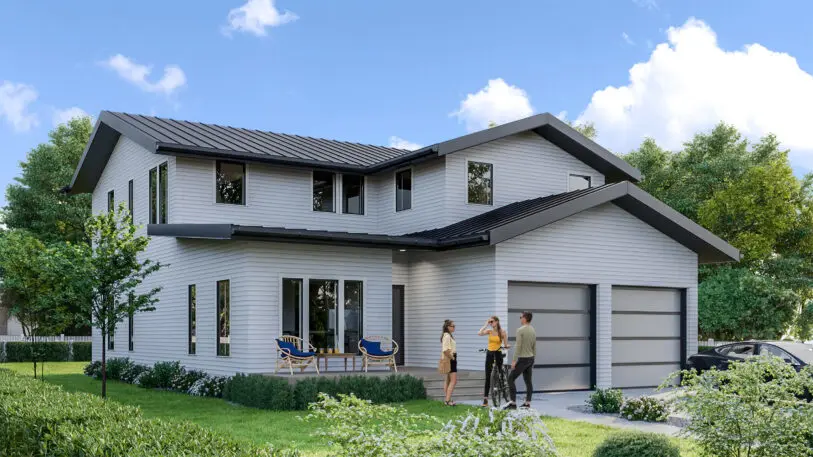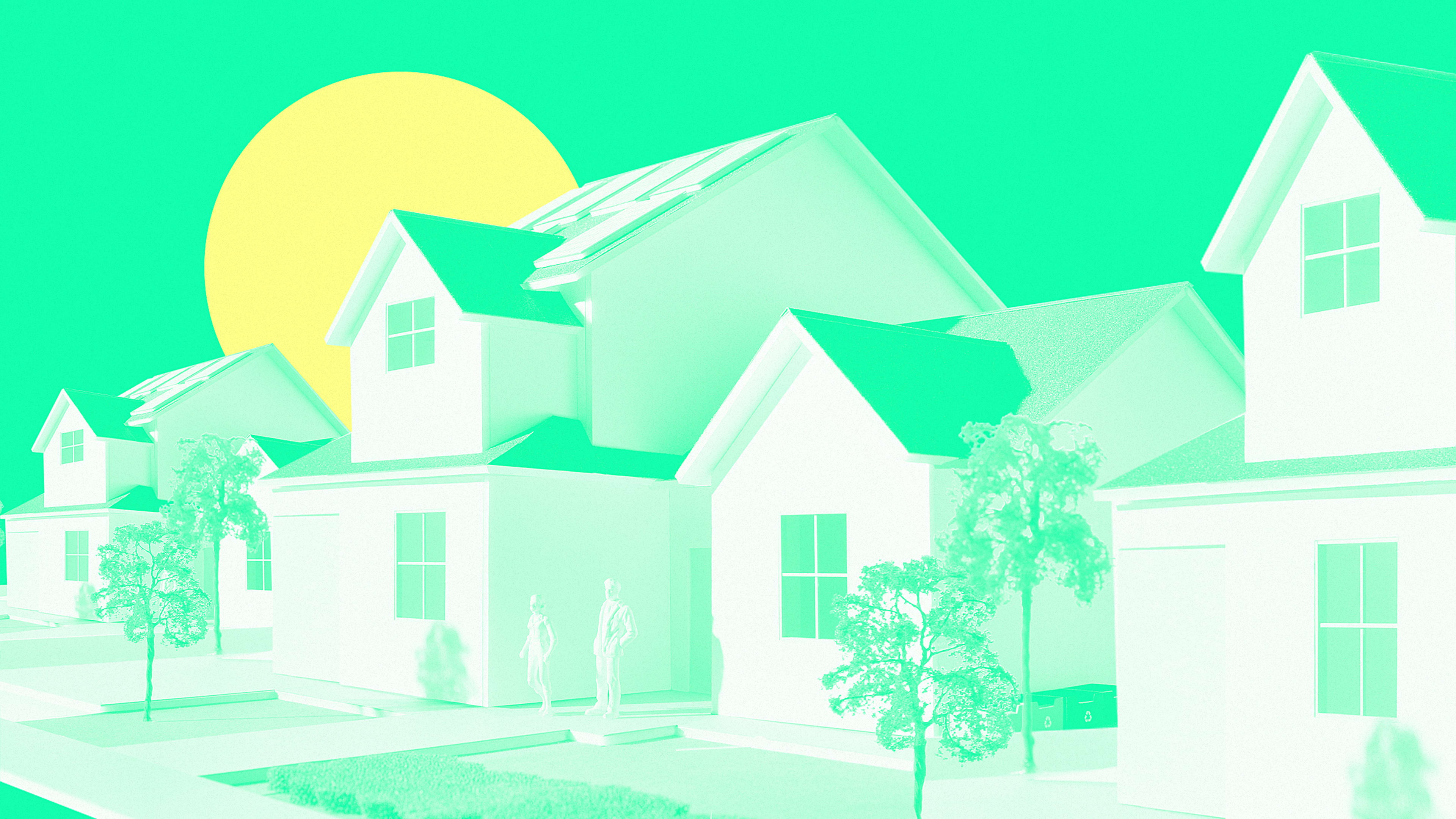Housing is responsible for a huge chunk of global carbon emissions—nearly a quarter of it, by one estimate. That’s one of the reasons that the new startup Aro Homes exists: Every house it builds will have net-zero energy use. The houses are also designed to cut water use in half and shrink the amount of time needed for construction.
“As we looked at residential construction, we quickly saw how inefficient and environmentally backward the single family residential construction space is,” says co-CEO Carl Gish, who previously worked at Amazon and Dyson. “It has gotten much better in commercial and even multifamily, but in the single-family residential space, which is so huge, it really hasn’t changed much in decades.”

The company, which publicly launched today and announced $21.1 million in Series A funding, was incubated at Innovation Endeavors, the Palo Alto-based venture capital firm cofounded by former Google CEO Eric Schmidt. “A couple of their partners had been looking at the [property] tech and construction tech space and hadn’t found any businesses that they thought could truly be transformational,” Gish says. “And so they developed a hypothesis about what it would take to solve this problem.”
Aro starts by using software to help identify properties where it can build, including factors like how the land is oriented to sunlight and whether there are shade trees on the property, which can affect energy use. The company plans to buy old, rundown, inefficient homes and replace them with new buildings. (Some other startups, like BlocPower, are focused on finding ways to shrink emissions in America’s aging housing stock through renovation rather than demolition.)
A suite of features will help the houses avoid emissions during use. Electric heat pumps and electric fireplaces will keep them warm; all of the high-efficiency appliances will also run on electricity, not fossil fuels. Insulation, efficient windows, and low-voltage LED lights will save energy. Solar panels and batteries will provide more energy than the houses use, so some can be sent back to the grid. The houses are also designed to reclaim water from pipes so it can be reused.
The homes—all standard designs and not customizable—will be built in part in a manufacturing plant, then completed on site, beginning with a 3,000-square-foot, 4-bedroom design. Modular building can reduce material waste in construction and save time, shrinking the building process for a home from 18 months to 3 months. Aro isn’t the only company in the modular building space to focus on sustainability. Plant Prefab, backed by Amazon, also makes sustainable factory-built homes. Mighty Buildings uses 3D printing in its factories to make carbon-neutral homes. Others, like Node, are making modular, tiny backyard homes that are “net-zero ready,” meaning they can be carbon neutral, or even carbon negative, when solar panels are added.
Unlike the traditional construction process, with developers, architects, general contractors, and realtors, “we own and control the process from end to end,” Gish says. That’s similar to Katerra, another homebuilding startup that failed not long after raising hundreds of millions of dollars from Softbank. Some of Aro’s team came from Katerra, and they argue that they’ve learned from Katerra’s mistakes.
“Construction is a complicated industry with so much room for improvement that it’s easy to get caught up in a lot of improvement projects—and I think we ultimately took some of that complexity for granted,” says Katie Blaesser, engineering director at Aro, who was previously a product manager at Katerra. The company tried to control the entire supply chain and every detail of construction, acquired other construction companies, and worked on multiple building types simultaneously, from office buildings to single-family homes. “We took on too many of those at Katerra. So instead of focusing on what really mattered, we changed directions so often that we had trouble finishing projects. Internally, we were often left wondering what the real goal of the company was. But at Aro, we’ve kept the goal simple and constantly remind ourselves what that goal is: to build residential housing in a more sustainable way.”
“This is a problem other people have tried to solve, and we don’t think we’re smarter than anybody else,” says Gish. “But we do think our approach and learning from what’s come before us and what people are doing today will allow us to achieve these goals.”
The company is now beginning operations in its first factory in Sacramento, and plans to finish its first homes in Silicon Valley early next year. Eventually, it plans to expand to other parts of the country, building new factories near new markets. The houses will be sold at market rate, though the team expects costs to come down in the future.
“What we’re trying to do is, frankly, kind of hard, and it’s expensive to do the design and build the platform,” Gish says. “So, initially, it’s going to be hard to really meet affordable-housing goals. But we believe that once we build this platform, once we have the scale and the proof of concept that we need, we’ll be able to build homes faster and more affordably than it’s done today.”
Correction: An earlier version of this story incorrectly said that Aro was the first startup incubated at Eric Schmidt’s Innovation Endeavors. It was the first to come out of internal research.
Recognize your brand’s excellence by applying to this year’s Brands That Matter Awards before the early-rate deadline, May 3.
